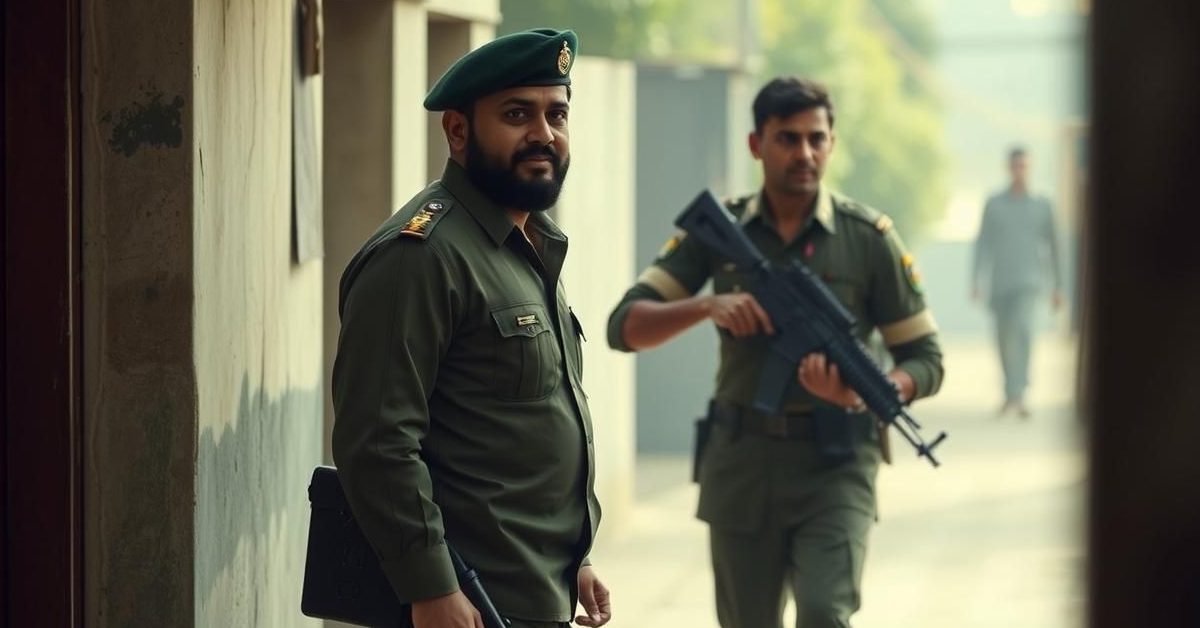The new film “Sarzameen” faces heavy criticism for its deeply flawed plot, unintentionally leading viewers to sympathize with a terrorist and wish ill upon an Indian Army officer.
A Father’s Unfathomable Neglect
In “Sarzameen,” we meet Vijay Menon, a stern military man portrayed by Prithviraj Sukumaran. Shockingly, he allows his own son, Harman (played by Ibrahim Ali Khan), to be “murdered” by terrorists in Kashmir.
His reasoning? Ostensibly, “nation comes first.” However, the film bizarrely implies his true disdain stems from Harman’s timidity, stutter, and inability to conform to traditional “boyhood” norms. It’s an astounding premise that suggests Harman’s survival hinged on him being a “different” kind of child.
A Series of Unbelievable Events
The movie is riddled with contrivances. Harman miraculously survives a point-blank gunshot to the head, only to reappear eight years later. This crucial period, detailing his time with terrorists and subsequent transformation, is completely ignored.
Equally puzzling is Harman’s mother, played by Kajol, who remains married to Vijay despite his abandonment of their son. The film offers no explanation for her loyalty, leaving viewers to believe her presence is merely for a later plot twist.
When Audiences Root for the “Villain”
Upon Harman’s return, Vijay suspects he’s an imposter. However, his suspicion isn’t rooted in the possibility of Harman being a brainwashed militant, but rather in the fact that Harman no longer stutters and seems more confident. This misplaced focus is baffling.
The film’s narrative choices are so poor that they create an unintended effect: viewers start to actively dislike Vijay. The story’s mishandling of his character and actions leads the audience to shockingly root for Harman, even if it means wishing harm upon the Indian soldier father.
Twists That Fail to Land
“Sarzameen” attempts to shock with a couple of major twists. First, it’s revealed that Harman was indeed a militant, brainwashed against his father. However, given Vijay’s earlier actions, this brainwashing seems almost justified from a narrative standpoint.
The biggest twist involves Kajol’s character being a double agent, originally sent to spy on the Indian Army. She supposedly fell in love with Vijay and had a child with him. The film offers no plausible explanation for why she would fall for such a callous man, leaving this revelation feeling hollow and unearned.
Missing the Mark on Sensitive Themes
Directed by Kayoze Irani, who previously showed promise with a short film, “Sarzameen” marks a bewildering feature debut. It feels disconnected, particularly in its action sequences, and its drama resembles poorly executed 90s cinema. Even Netflix, known for picking up various projects, reportedly drew the line on this one.
Ultimately, the film paints an Army officer as a villain and presents militants’ actions as morally justifiable. By relying on trivial tropes and convenient plot devices, “Sarzameen” does a disservice to its characters and, more significantly, to the complex geopolitical issues it attempts to address.
- The film’s premise involves a father abandoning his son to terrorists due to personal dislike.
- Major plot holes include an unexplained 8-year time skip for the son and an illogical marriage for the mother.
- Poor writing leads to audiences rooting against the lead military character.
- Twists involving a brainwashed son and a double-agent mother feel unearned and lack logical foundation.
- “Sarzameen” fails to handle its sensitive themes responsibly, misrepresenting complex geopolitical issues.
The film stands as a cautionary tale in storytelling, highlighting how a poorly constructed narrative can inadvertently undermine its own intended message and character portrayals.















